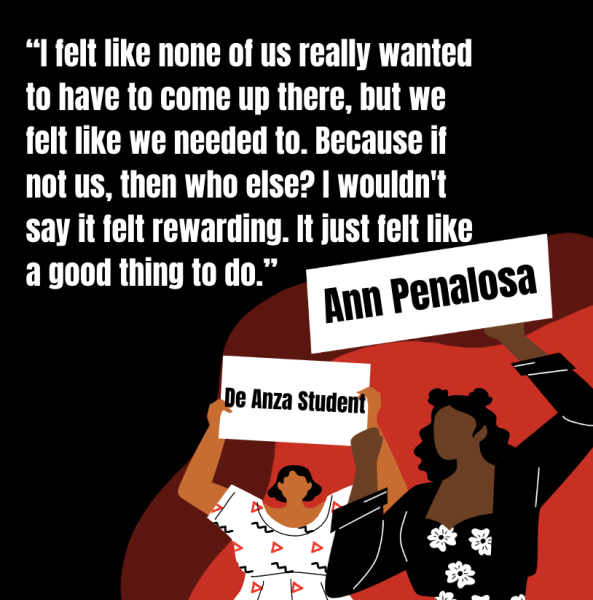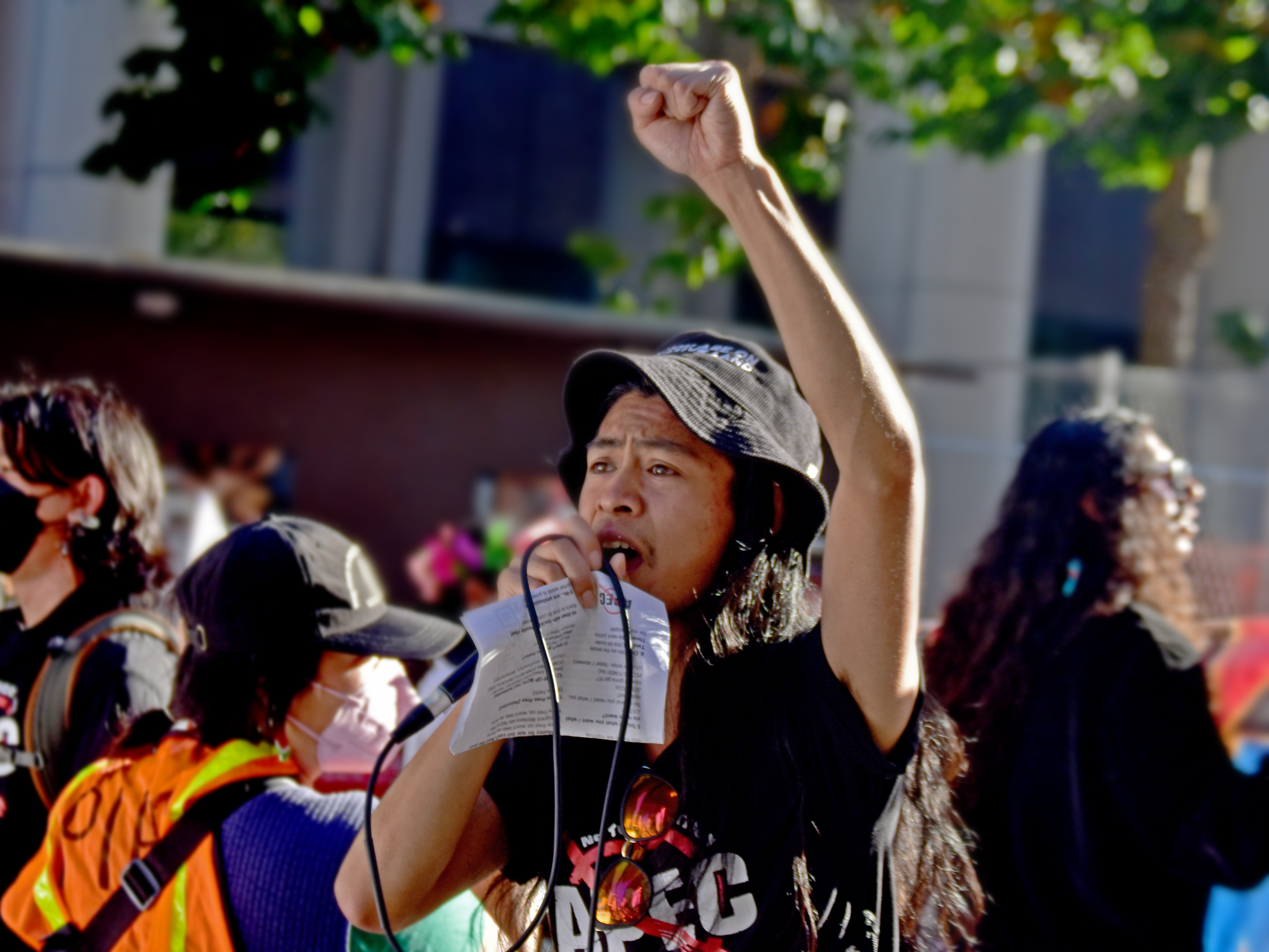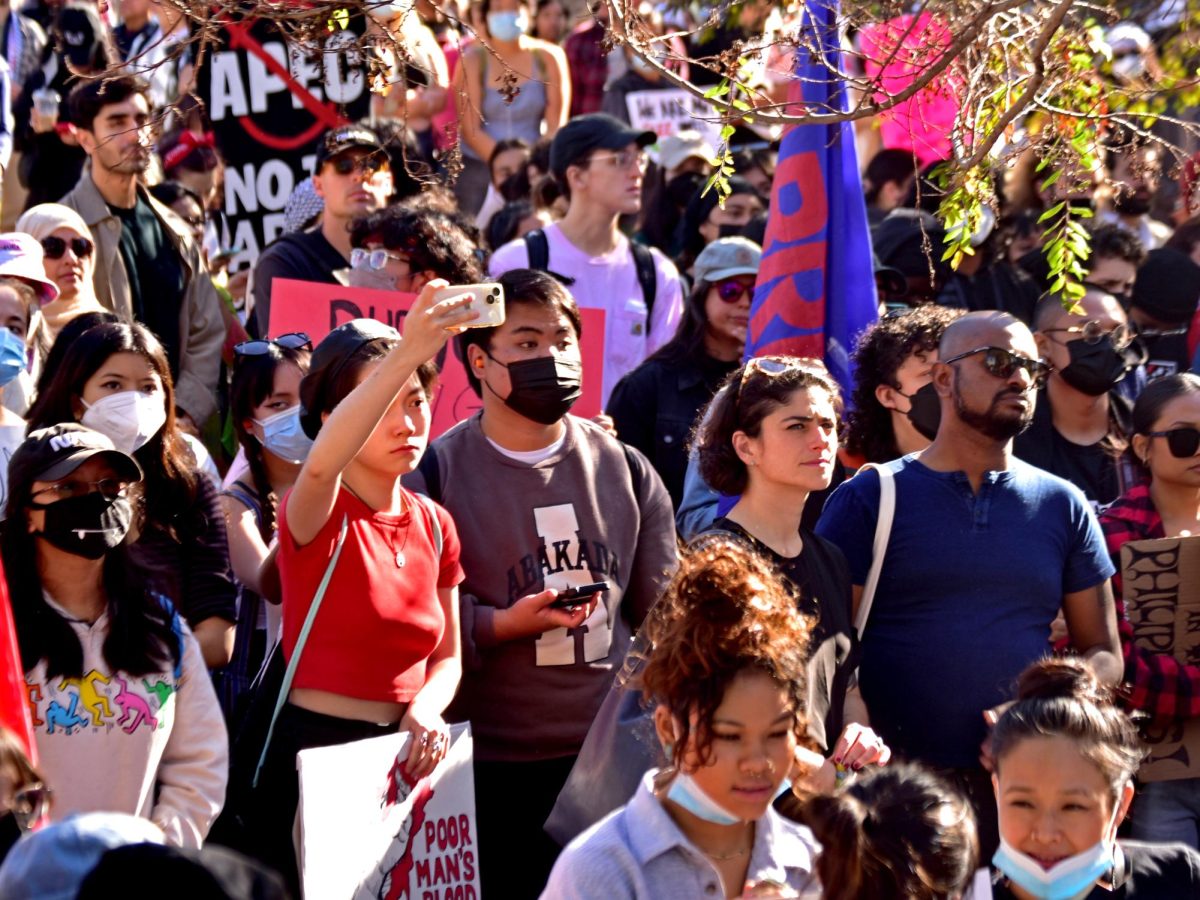Stepping off the charter bus in Sacramento in the spring of 2005, AP Government teacher Benjamin Recktenwald gazed in astonishment at the sheer number of buses dropping off teachers from across the state. On the bus ride to the protest, he recalled the same question repeatedly playing in his head: What are we doing when we get there? These feelings of uncertainty quickly shifted to motivation as he saw the number of educators attending. Following directions from an organizer, he raised a sign from a pile nearby and followed the crowd. As he marched toward the California Capitol building, chanting along to slogans he picked up along the way, Recktenwald felt a sense of solidarity among the thousands of teachers, who were all fighting for the same cause.
Recktenwald was part of a California Teachers Association protest that fought against former California Gov. Arnold Schwarznegger’s educational budget cuts. Although he later found out Schwarzenegger wasn’t actually at the Capitol at the time, he still felt that it didn’t make the experience any less powerful. He was especially impressed by how organized the protest was, originally expecting a chaotic crowd. While Recktenwald also experienced initial feelings of anger, as the protest continued, he felt an unexpected sense of unity, noticing the large groups of teachers, school counselors and various other educational faculty willing to fight for the rights of educators. According to Recktenwald, the atmosphere of the protest played a huge role in shifting his mindset, as he absorbed the lively enthusiasm around him, and he started to feel more gratified.
“I actually expected to be really angry the whole time,” Recktenwald said. “But because there were so many of us there kind of working together, there was a certain level of festivity about it, because we were all there fighting for the same thing, and it made us all feel really good and you can get those good feelings going. It was kind of this [feeling] because of which people were there, or working towards a common goal, and the goal is making noise. There’s a certain level that I can think of as kind of a festive atmosphere, but again, we’re also angry at what kind of policies are being put forward.”
However, protests are not always as festive or organized as the one Recktenwald attended. De Anza student Ann Penalosa, a member of several organizations, including a Filipino youth organization called Anakbayan, says that certain protests can be unsafe when the police get involved. She recalls a Black Lives Matter protest she attended in San Jose, where the officers brought riot gear to subdue the protestors. Penalosa notes her fears of police brutality but explains that she tries not to think about the experience so that she is not discouraged from protesting. Despite these dangers, Penalosa tries to get involved as much as she can for the causes that she believes in. 
“I felt like none of us really wanted to have to come up there but we felt like we needed to,” Penalosa said. “Because if not us, then who else? I wouldn’t say it felt rewarding. It just felt like a good thing to do. Protesting is that big action that people can take when small actions aren’t working because you can have a bigger impact with protesting. For example, for small businesses, protests are usually effective constraints to get people to actually listen.”
On the other hand, unlike Recktenwald and Penalosa, senior Pratha Joshi describes her participation in a BLM protest during the COVID-19 pandemic and her initial emotions of shock and awe, as it was her only exposure to political activism besides social media. Being Joshi’s first time protesting, the experience was simultaneously surreal but also very overwhelming as she recalls struggling to take every detail in. After reading every word on each sign, and marching for every life that was lost, Joshi believes that attending this BLM protest only fueled her interest in the cause.
“I definitely wasn’t angry, but I also can’t say it was solidarity,” Joshi said. “I feel like those are the big ones that you think you’d feel by then, but for me, it was mostly just kind of like a numbness, you know, because I’ve seen it everywhere through my phone, and now I’m in this moment, and I’m walking past all these people and I can see it on their faces and hear it and their voices as they can’t name them. They’re holding up faces of lives that have been taken unjustly.”
Penalosa says she has formed many connections with the people she met at protests. Through these connections, she has learned how to keep herself safe during protests, as well as how to use CPR to save others, and these encounters brought her closer to friends.
“Some of my closest friends, even though they’ve gone off schools or have moved into other forms of action, I have met through organizing your actions,” Penalosa said. “What I’ve learned from these people shapes who I am today.”
Joshi agrees and believes that the sense of community also helps foster her own passion for the cause. She feels that walking with others and fighting for the same cause makes the experience more impactful and powerful.
“When you reach the end of that march in the park walking together, that’s when what you’re doing sinks in and that we’re doing this and that we’re fighting for something,” Joshi said. “There’s something very interesting and powerful in that experience.”
Similarly, Recktenwald emphasizes the importance of protesting as he explains how it demonstrates the power of the people, and how much change we can make by fighting for what we believe in. In his eyes, every voice matters, and he sees it as everyone’s duty to stand up for their own rights and well being when politicians aren’t.
“Protesting is your right,” Recktenwald said. “First amendment, free speech, the right to petition. Sometimes our elected officials don’t listen to the voters unless they actually get on the street and start yelling. So you still have to vote but also get on the street and have your voices heard. I think part of the whole idea of the solidarity of it coming together as a group with a common purpose is really amazing.”














